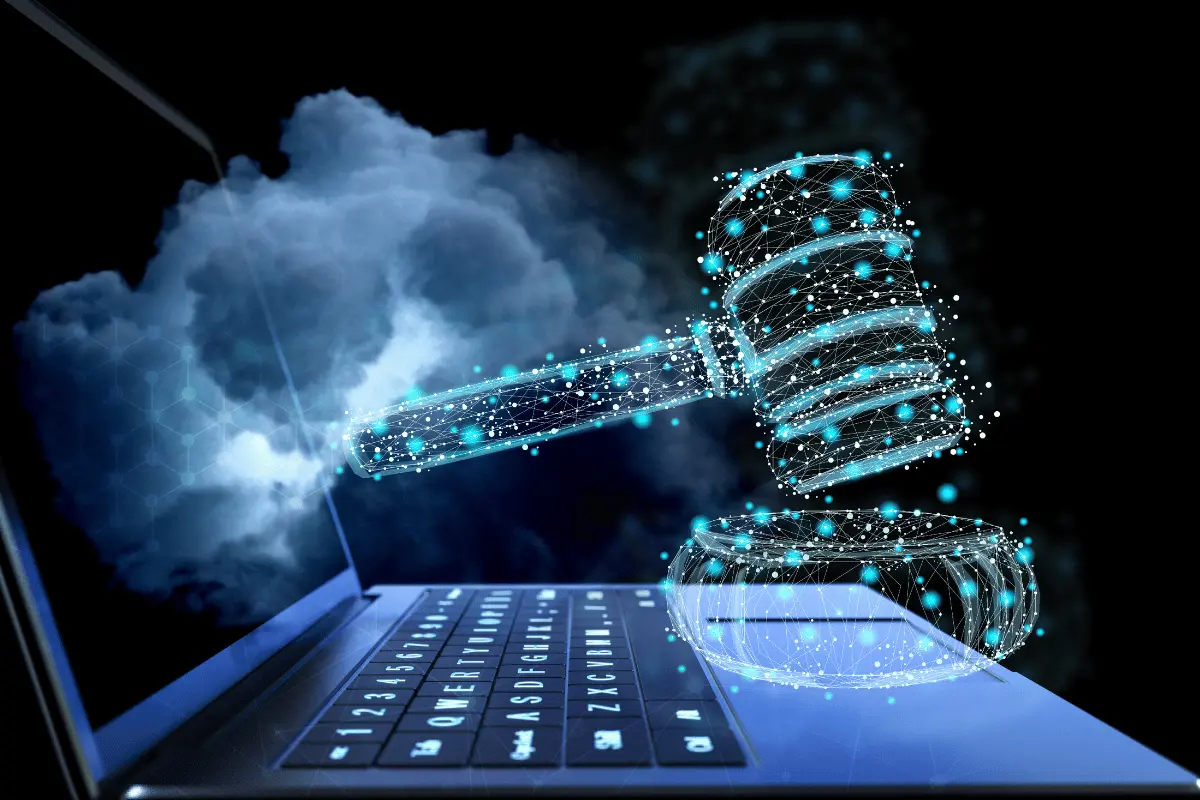The legal profession is not an exception to how artificial intelligence (AI) is transforming numerous sectors. AI is revolutionizing the way legal professionals approach their job by processing enormous volumes of data, identifying patterns, and making predictions. Artificial intelligence (AI) has the ability to improve results by streamlining procedures, increasing efficiency, and researching and analyzing legal issues. In this essay, we’ll go into the field of artificial intelligence law, looking at how it affects legal systems, how it’s used in various contexts, and the regulatory and ethical frameworks that surround it.
Table of Contents
An Overview of AI in Law Sector
Artificial intelligence law is the nexus between the legal system and artificial intelligence. It includes the use of AI technology to streamline legal procedures, boost output, and provide insightful data. In order to help legal practitioners make decisions, artificial intelligence (AI) systems may analyze enormous volumes of legal data, spot trends, and provide forecasts. Artificial Intelligence (AI) is changing the way legal services are provided by automating repetitive activities and enhancing human skills.
How AI Affects Legal Systems
Both possibilities and problems are presented by the incorporation of AI into judicial institutions. On the one hand, artificial intelligence has the potential to boost production, reduce costs, and enhance access to justice. It may automate repetitive procedures, giving attorneys more time to concentrate on challenging and strategic issues. On the other side, there are concerns over the number of jobs that will be lost and the ethical repercussions that will result from the widespread use of AI algorithms. Achieving the ideal balance between human judgment and AI support is essential for the effective use of AI in the legal industry.
Using AI for Contract Management
In the field of contract management, AI is advancing significantly. The whole contract lifetime, from inception to negotiation and renewal, may be streamlined with AI-powered contract management tools. These systems extract essential phrases, detect possible dangers, and recommend modifications using natural language processing (NLP) and machine learning methods. Artificial intelligence (AI) provides quicker contract turnaround times, lowers mistakes, and improves communication between parties by automating repetitive operations and giving real-time insights.
Using AI for Legal Analysis and Research
Legal research is a time-consuming activity that requires a thorough examination of legislation, rules, and case law. Artificial intelligence (AI) techniques that swiftly analyze and organize massive volumes of legal material may speed up the research process. Algorithms for natural language processing are capable of extracting pertinent information from legal papers and producing thorough summaries. Additionally, AI-powered predictive analytics may aid with case result forecasting, assisting attorneys in creating strong plans of action.
Utilizing AI for Performing Due Diligence and Reviewing Documents
Due diligence and document review are important aspects of legal processes that can include the study of large numbers of documents. The examination of documents may be automated using AI-based tools like machine learning and optical character recognition (OCR). These systems may classify documents, highlight pertinent data, and spot trends, saving time and lowering the possibility of human mistake. AI also makes it possible for more complete due diligence by bringing to light hidden patterns in large datasets.
AI Law’s Ethical Considerations
Although AI has many advantages, there are also significant ethical issues that need to be taken into account. The absence of bias and the maintenance of fairness in AI systems are two important concerns. The historical data that AI systems are educated on may include biases that help to maintain inequity or prejudice. To maintain fairness and equitable treatment under the law, it is crucial to create reliable systems for detecting and mitigating biases. Additionally, privacy and data protection must be taken into account when applying AI to the legal sector. To retain trust and secrecy, it is crucial to protect sensitive customer information and follow data privacy laws.
AI Law Regulatory Frameworks

The necessity for precise regulatory frameworks is becoming more and more critical as AI develops. National and international organizations are working hard to develop policies and rules for the use of AI in the legal sector. These frameworks are designed to solve problems with AI system accountability, transparency, and explain ability. They also aim to achieve a balance between protecting core legal norms and innovation. It is critical for legal experts and decision-makers to keep up to date on new developments and contribute to the creation of appropriate AI rules.
Finalization
AI Law has the potential to change the legal industry by bringing better accessibility, efficiency, and accuracy. Legal practitioners may expedite their processes and provide better results for customers by using AI technology in contract administration, legal research, and document review. To make sure that AI is used appropriately, ethical issues including prejudice, fairness, and privacy must be carefully considered. AI Law may help create a more effective and fair legal system if the appropriate regulatory frameworks are in place.
In conclusion, AI Law is changing the legal environment by presenting new opportunities and difficulties. Legal practitioners may streamline their processes and provide customers better services by using AI in contract administration, legal research, and document review. To guarantee a responsible and fair use of AI in the legal sector, it is crucial to address ethical issues like prejudice and privacy and develop strong regulatory frameworks. Adopting AI Law might result in a more effective, reachable, and fair judicial system for everybody.
FAQs
Will AI eventually replace lawyers?
AI is not intended to take the role of attorneys. Instead, it helps them do their jobs better by automating mundane tasks and providing valuable data. In order to comprehend the law, counsel clients, and make strategic judgments, lawyers will always be essential.
Are AI systems subject to bias?
Incorrect or inadequate datasets might cause AI systems to be prejudiced. To achieve fair and equal results, it is essential to put into place strong procedures to detect and reduce biases.
How can AI make it easier to obtain justice?
By automating procedures, cutting expenses, and boosting efficiency, AI may increase access to justice. By offering legal aid and resources to those who would not have access to conventional legal services, it can aid in closing the justice gap.
What are the possible downsides of using AI in the legal industry?
The overuse of AI algorithms without human supervision is one possible problem. To guarantee that legal rulings take into account the complexity and subtleties of particular instances, it is crucial to strike a balance between AI help and human judgment.
What function do attorneys have in AI Law?
Lawyers are essential to AI Law. They provide the specialized legal knowledge, moral concerns, and human judgment required to guarantee that AI is used responsibly and in accordance with legal standards and laws.




